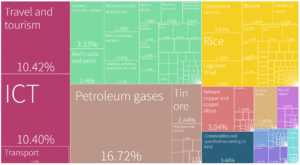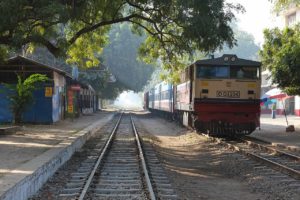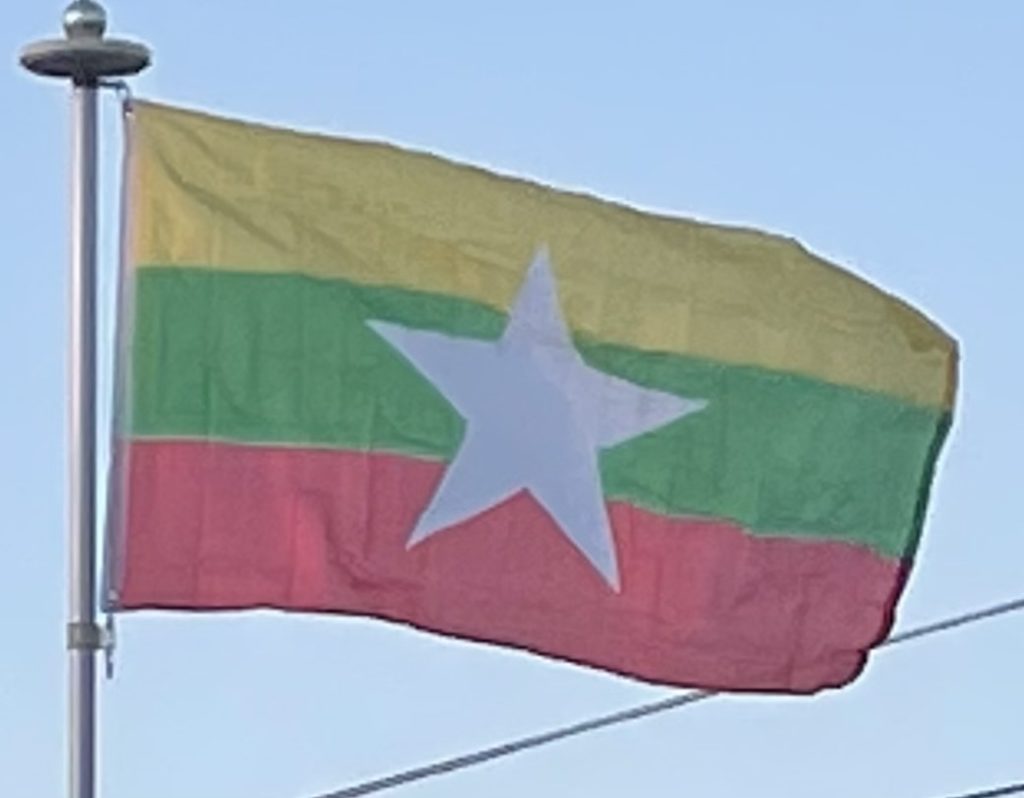
The informal economy’s share in Myanmar is one of the biggest in the world and is closely linked to corruption, smuggling and illegal trade activities. In addition, decades of civil war and unrest have contributed to Myanmar’s current levels of poverty and lack of economic progress. Myanmar lacks adequate infrastructure. Goods travel primarily across the Thai border (where most illegal drugs are exported) and along the Irrawaddy River.
Both China and India have attempted to strengthen ties with the government for economic benefit in the early 2010s. Many Western nations, including the United States and Canada, and the European Union, historically imposed investment and trade sanctions on Myanmar. The United States and European Union eased most of their sanctions in 2012. From May 2012 to February 2013, the United States began to lift its economic sanctions on Myanmar “in response to the historic reforms that have been taking place in that country.” Foreign investment comes primarily from China, Singapore, the Philippines, South Korea, India, and Thailand. The military has stakes in some major industrial corporations of the country (from oil production and consumer goods to transportation and tourism).
The major agricultural product is rice, which covers about 60% of the country’s total cultivated land area.
Myanmar produces precious stones such as rubies, sapphires, pearls, and jade. Rubies are the biggest earner; 90% of the world’s rubies come from the country, whose red stones are prized for their purity and hue. Thailand buys the majority of the country’s gems. Myanmar’s “Valley of Rubies”, the mountainous Mogok area, 200 km (120 mi) north of Mandalay, is noted for its rare pigeon’s blood rubies and blue sapphires.

Many U.S. and European jewelry companies, including Bulgari, Tiffany and Cartier, refuse to import these stones based on reports of deplorable working conditions in the mines. Human Rights Watch has encouraged a complete ban on the purchase of Burmese gems based on these reports and because nearly all profits go to the ruling junta, as the majority of mining activity in the country is government-run. The government of Myanmar controls the gem trade by direct ownership or by joint ventures with private owners of mines.
Other industries include agricultural goods, textiles, wood products, construction materials, gems, metals, oil and natural gas.
Transportation:
While there are railroads in Myanmar, none of them link to neighboring countries. Rail services within Myanmar are generally slow going.

The road network is being expanded with one multi-lane expressway having been completed. Cars, buses, taxis, and motorbikes are all common sights on Myanmar roads.
River transportation is provided by ferries and some river cruise lines as well.
Flights are available from most countries, though direct flights are limited to mainly Thai and other ASEAN airlines. According to Eleven magazine, “In the past, there were only 15 international airlines and increasing numbers of airlines have begun launching direct flights from Japan, Qatar, Taiwan, South Korea, Germany and Singapore.” Expansions were expected in September 2013 but are mainly Thai and other Asian-based airlines.
